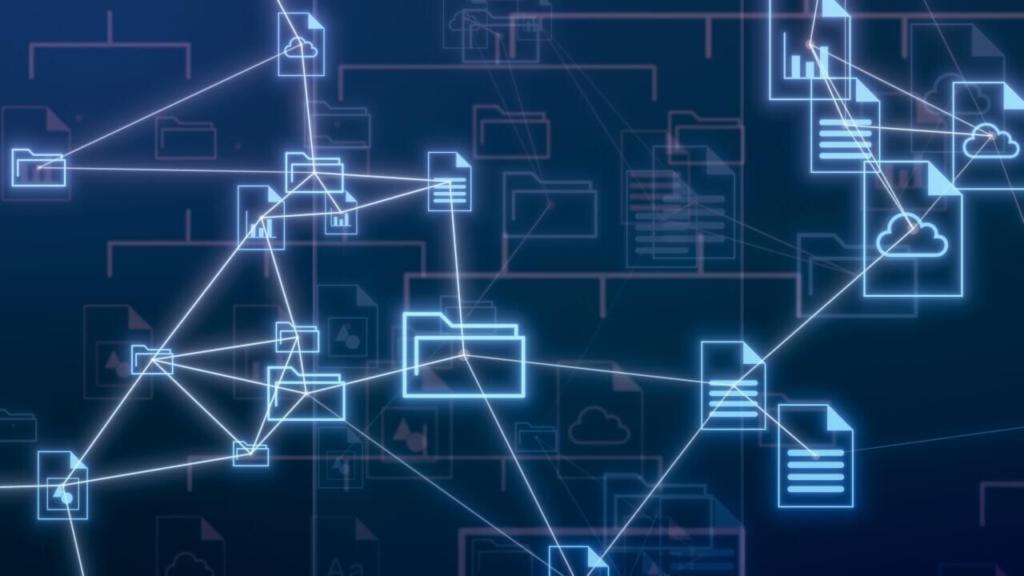Best Practices for Organizing Employee Files

November 27, 2024
In the fast-paced world of HR, a single slip in employee records management can lead to serious consequences. Are your employee files organized to protect both your company and your workforce?

Employee records management is a critical aspect of running a successful business. Proper organization of employee files not only ensures compliance with legal requirements but also streamlines HR processes. This guide will explore best practices for maintaining employee records, helping you create a system that’s both efficient and secure. From essential documents to storage methods, we’ll cover everything you need to know to keep your employee files in order.
Type of employee records in Vietnam
Vietnam’s labor laws require employers to maintain comprehensive employee records. These records serve multiple purposes, from ensuring legal compliance to facilitating smooth human resource operations. The following list outlines 16 essential types of employee records that businesses in Vietnam should diligently maintain.
- Contracts and agreements: These form the foundation of the employer-employee relationship, outlining terms and conditions of employment. They include offer letters, employment contracts, non-disclosure agreements, and non-compete agreements.
- Time records: Essential for fair compensation and compliance, these records include clock-in/clock-out data, overtime records, break times, and shift schedules.
- Performance records: These track an employee’s growth and achievements, encompassing annual performance reviews, goal-setting documents, productivity metrics, and disciplinary actions.
- Personal data and personnel files: This category covers a wide range of personal information necessary for administrative purposes, such as contact details, emergency contact information, educational background, professional certifications, and work history.
- Government verification records: These documents verify an employee’s legal status and right to work in Vietnam, including work permits, residency cards, passport copies, and visa documentation.
- Collective bargaining/union records: Crucial for companies with unionized workforces, these include union membership records, collective bargaining agreements, and grievance proceedings.
- Background checks and drug Tests: These help ensure a safe and trustworthy work environment, including criminal background check results, reference check documentation, and drug test results if applicable.
- Acknowledgments and policy agreements: These confirm an employee’s understanding of company policies, including employee handbook acknowledgments, IT security policy agreements, and code of conduct acceptances.
- Recruitment records: Tracing the hiring process from start to finish, these include job applications, interview notes, skills assessment results, and offer letters.
- Benefits records: Covering all documentation related to employee benefits programs, this category includes health insurance enrollment forms, life insurance beneficiary designations, retirement plan contributions, and flexible spending account elections.
- Pension and retirement records: These track an employee’s long-term financial benefits, including pension plan enrollment forms, contribution history, and vesting schedules.
- Equity records: For companies offering stock options or other equity incentives, these include stock option grants, restricted stock unit (RSU) agreements, and equity vesting schedules.
- Payroll and wage data: Essential for tax compliance and fair compensation, these records include salary history, bonus payments, commission records, and deductions and withholdings.
- Tax records: Ensuring compliance with Vietnamese tax regulations, these include employee tax declarations, tax withholding forms, and annual tax summaries.
- Leave records: Crucial for maintaining productivity and ensuring compliance with labor laws, these track various types of leave including annual leave, sick leave, maternity/paternity leave, and personal leave.
- Medical and safety records: These help maintain a safe work environment and comply with occupational health regulations, including workplace accident reports, safety training records, and medical examination results if required for the job.

Retention periods for employee records in Vietnam
Vietnamese law stipulates specific timeframes for certain documents, while best practices guide the retention of others. Proper record-keeping can be your best defense in potential disputes or audits.
- Contracts, Time Records, Performance Records: These must be retained for a minimum of 10 years from the end of the fiscal year the employee was terminated, as per Decree 174/2016/ND-CP, Articles 13.1 and 15.1. Best practice suggests retaining these records for 15 years to allow for potential long-term analysis and to cover any extended legal situations.
- Payroll, Wage, Tax, Benefits, Pension, and Equity Records: These also require a minimum 10-year retention period from the end of the fiscal year the employee was terminated, according to Decree 174/2016/ND-CP, Articles 13.1 and 15.1. It’s advisable to maintain these records for at least 15 years to ensure compliance with potential tax audits and provide a comprehensive financial history.
- Personal Data and Personnel Files: Best practice is to retain these for a minimum of 1 year after termination. This is based on the Labour Code 2019, Articles 190 and 194, which set the statute of limitations for labor claims at 1 year from the date of awareness of infringement. However, consider keeping these records for 3-5 years post-termination to cover any extended legal disputes or reference needs.
- Government Verification Records: Best practice is to retain copies for a minimum of 1 year. However, original documents must be returned to the employee upon termination as per Labour Code 2019, Article 48.3. It’s recommended to keep copies for 3 years post-termination to assist with any visa or work permit inquiries that may arise.
- Collective Bargaining/Union Records: The best practice is to retain these records permanently due to their historical significance and potential relevance for long-term labor relations.
- Recruitment Records: It’s advisable to retain these records as long as possible, with a recommended duration of at least 5 years. This allows companies to defend against potential discrimination claims and maintain a pool of past candidates for future openings.
Best practices for employee record management
Accurate employee records are crucial for HR, and how you manage them can greatly affect your organization’s efficiency and compliance. Implementing best practices in employee record management can streamline processes, enhance data security, and ensure easy access to information when needed.
Implement a digital document management system
Transitioning to a digital platform is fundamental to modern record management. Electronic storage enhances accessibility, security, and efficiency. By digitizing records, organizations can access information remotely, implement robust safeguards, and automate workflows to minimize errors.
Consider investing in specialized HR software tailored to Vietnamese labor laws. These systems often feature digital signatures and audit trails, bolstering compliance and efficiency. The shift to digital not only conserves physical space but also facilitates real-time updates, ensuring your employee record system remains current and accurate.
Establish comprehensive security levels
Protecting sensitive employee data is paramount. Implement a multi-tiered security system that includes:
- Role-based access control (RBAC)
- Two-factor authentication (2FA)
- Data encryption at rest and in transit
- Activity logging and monitoring
Regularly review and update access permissions, especially during employee role changes or departures. This proactive approach significantly reduces the risk of unauthorized data access and creates an invaluable audit trail for detecting potential security breaches.
Conduct regular audits
Periodic audits are essential for maintaining compliance and identifying areas for improvement. Focus your audits on compliance with Vietnamese labor laws, record accuracy and completeness, retention policy adherence, and security protocol effectiveness. These reviews also help identify staff training needs, ensuring your team stays current with best practices.
Consider engaging external auditors periodically for an unbiased assessment. Their insights can be invaluable in refining your record management strategies and uncovering blind spots in your current processes.
Implement proper disposal procedures
Secure disposal of outdated records is crucial for data privacy and compliance. Develop a comprehensive disposal policy that outlines the identification of disposable records, appropriate disposal methods, documentation of the process, and staff training on proper procedures.
For digital records, use specialized software to ensure complete data erasure. Physical documents should be shredded or incinerated under supervised conditions. Following these steps protects sensitive information throughout its entire lifecycle.
Invest in continuous HR staff training
Well-trained HR personnel are your first line of defense against record management issues. Focus training programs on Vietnamese labor law requirements, data protection best practices, digital system usage, and handling sensitive information. Regular refresher courses help staff stay updated with evolving regulations and technologies.
Consider implementing a mentorship program where experienced staff guide newer employees. This approach ensures knowledge transfer and fosters a culture of continuous learning within your HR department.
Segregate sensitive information
Certain types of employee data require heightened protection. Create separate, highly secure storage for medical records, financial information, disciplinary records, and performance evaluations. This segregation enhances security and simplifies compliance with data protection regulations.
Ensure that access to these sensitive files is strictly limited and logged. By treating this information with extra care, you demonstrate your commitment to employee privacy and data protection.
Develop a comprehensive document retention policy
A well-defined retention policy is crucial for legal compliance and efficient record management. Your policy should outline:
- Retention periods for each document type
- Storage locations (physical and digital)
- Responsible parties for each record category
- Review and disposal procedures
Align your policy with Vietnamese labor laws and industry standards. Regularly review and update the policy to reflect changing regulations and business needs. This proactive approach helps you stay ahead of compliance requirements and adapt to evolving best practices.
Implement robust backup and disaster recovery systems
Data loss can have severe consequences. Protect your records with regular backups, including daily incremental and weekly full backups. Store copies in a secure, off-site location and consider utilizing reputable cloud services for added protection.
Develop a comprehensive disaster recovery plan that outlines steps to quickly restore access to critical employee data in emergencies. Regularly test your recovery processes to ensure they function as intended when needed.

Legal implications of improper record-keeping
Understanding the potential consequences of poor record management is crucial for prioritizing best practices. Improper record-keeping can lead to several serious legal and operational issues:
- Non-compliance with labor laws: Organizations may face fines, penalties, and legal action from regulatory bodies. This can also damage the company’s reputation and erode trust with employees and stakeholders.
- Vulnerability in legal disputes: Incomplete or inaccurate records weaken an organization’s ability to defend against claims such as wrongful termination, discrimination, or wage disputes. Detailed records are crucial evidence in legal proceedings.
- Data privacy violations: Mishandling employee data can result in privacy breaches, leading to legal liability and financial penalties. This can significantly damage employee trust and potentially trigger class action lawsuits.
- Audit and investigation complications: Poor record-keeping hampers internal audits, government inspections, and due diligence processes. Well-organized records demonstrate commitment to compliance and transparency.
Remember, staying compliant doesn’t have to be complicated. With the right tools and processes in place, you can simplify your employee records management and focus on what really matters. However, we know from experience that maintaining compliance and efficiency in record-keeping can be challenging, especially as your organization grows and evolves.
That’s why we’ve developed our comprehensive HR Administration solutions. Our compliance services offer expert guidance on labor code application, HR restructuring, and secure data storage, ensuring you stay compliant even during complex transitions like M&As. Meanwhile, our payroll system leasing provides a customized, cloud-based solution that automates processes, improves efficiency, and safeguards your payroll data. By partnering with Talentnet, you can transform your employee records management from a daunting task into a strategic advantage, allowing you to focus on what truly matters – growing your business and nurturing your team.





